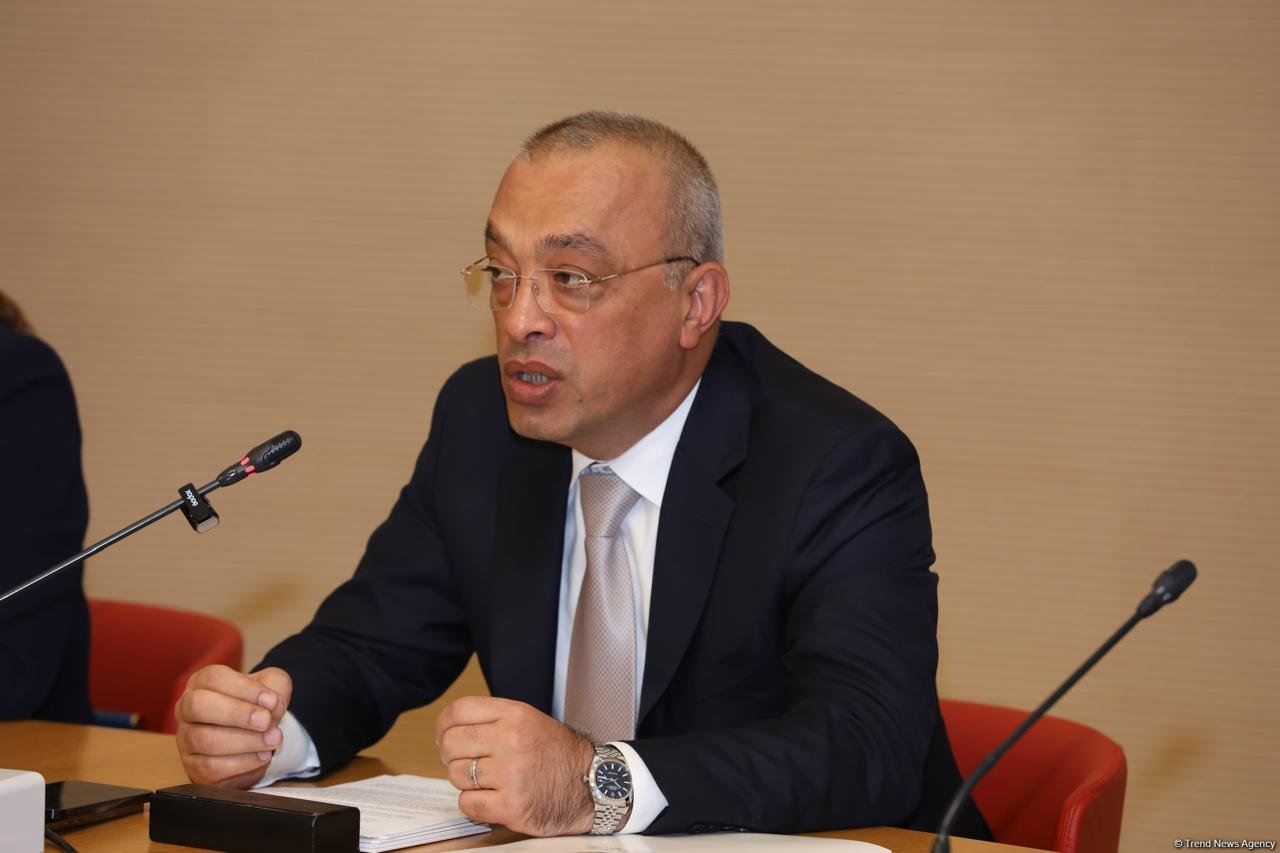BAKU, Azerbaijan, November 17. Azerbaijan has adopted advanced irrigation methods in response to the increasing demand for sustainable water resource management, said Zaur Mikayilov, Chairman of the State Water Resources Agency of Azerbaijan, Trend reports.
Speaking at an event on "Innovative Approaches to Sustainable Water Resources Management" as part of COP29, Mikayilov highlighted the growing impact of climate change on water scarcity, worsening weather conditions, and the increasing frequency of droughts and floods, making sustainable water management a critical priority.
"Rapid population growth and urbanization are further straining water resources, necessitating innovative solutions to ensure secure and reliable water supply. On a global scale, water resources are under severe pressure due to pollution, overuse, and ongoing climate changes. These realities emphasize the importance of adaptive solutions that enhance water efficiency and resilience," he noted.
Mikayilov elaborated on Azerbaijan's initiatives in this area.
"Although the annual per capita water reserve in the country is 3,253 cubic meters, this figure drops significantly to 1,051 cubic meters without considering transboundary sources. Forecasts indicate that by 2025, Azerbaijan could experience some of the lowest levels of local water resources per capita globally.
Among the key initiatives is the planned use of desalination technology, particularly for Caspian Sea water, to provide alternative drinking water sources for the Absheron Peninsula. Azerbaijan is investing in energy-efficient desalination processes to enhance water supply and strengthen climate resilience.
Additionally, advanced irrigation methods like drip and pivot systems are being introduced, delivering the precise amount of water needed directly to crops, minimizing waste. Water-saving technologies, such as smart metering and leak detection, are also being implemented across various sectors to prevent unnecessary water losses.
This comprehensive approach supports sustainable water resource management, reduces carbon emissions, and aligns with the global goal of limiting warming to 1.5°C.
Achieving sustainable water management and climate resilience requires joint international efforts, as water scarcity and climate change are global challenges beyond national borders. Through partnerships, knowledge sharing, and collaborative actions, we can develop innovative water management strategies, strengthen regulatory frameworks, and build capacity, especially in developing countries," he added.
The Chairman concluded by expressing gratitude for the support and cooperation, stating, "Let us work together towards a future where water is managed efficiently, every drop is valued, and sustainable practices ensure the well-being of all communities.
The 29th session of the Conference of the Parties to the UN Framework Convention on Climate Change (COP29), which will run until November 22, opened at the Baku Olympic Stadium on November 11. The event is the largest organized by Azerbaijan to date and is the first time the region has hosted the event in Azerbaijan.
Within COP29, the highest level event - the summit of world leaders on climate action - was held on November 12–13.
The main expectation from COP29 is to agree on a fair and ambitious New Collective Quantitative Goal (NCQG) on climate finance. The COP29 chairmanship has launched 14 initiatives that include linkages between climate action and the Sustainable Development Goals, including green energy corridors, green energy storage, harmony for climate resilience, clean hydrogen, methane reduction in organic waste, action on green digital technologies, and other topics.
In addition to being a top priority that creates the conditions for action, creating climate finance will also help fulfill the 1.5°C pledge by bringing everyone together.
The UN Framework Convention on Climate Change is an agreement signed at the Rio Earth Summit in June 1992 to prevent dangerous human interference in the climate system. The acronym COP (Conference of Parties) stands for “Conference of Parties” and is the highest legislative body overseeing the implementation of the Framework Convention on Climate Change.
A total of 198 countries are parties to the Convention. Unless otherwise decided by the parties, COP is held annually. The first COP event was held in March 1995 in Berlin, and its secretariat is located in Bonn.







